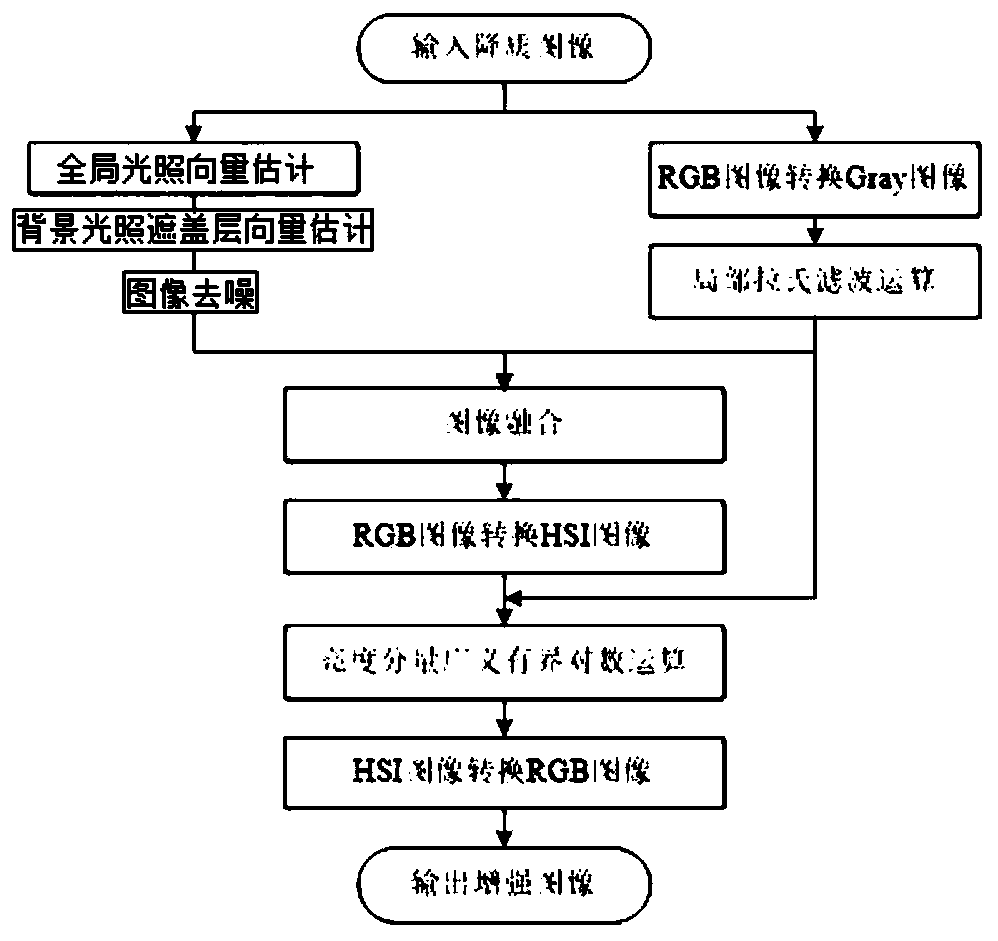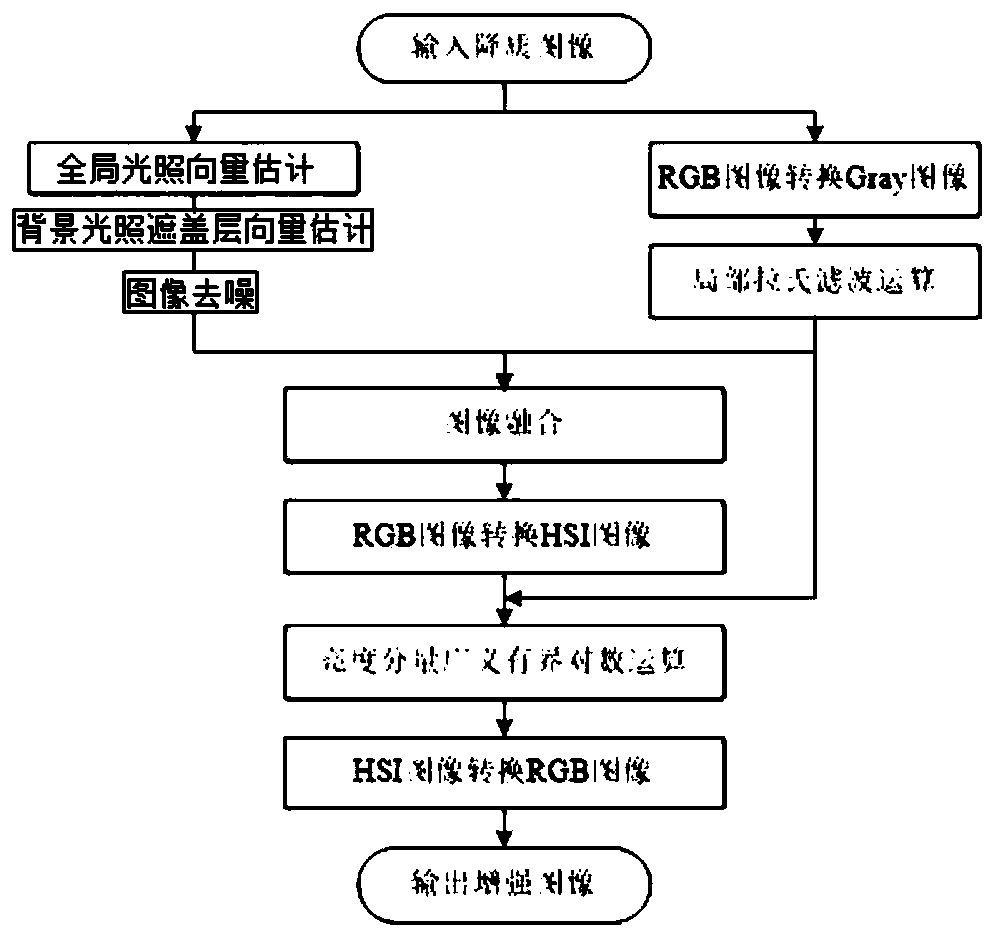Self-adaptive gain underwater image enhancement method based on HSI space optical imaging model
An adaptive gain, imaging model technology, applied in image enhancement, image analysis, image data processing and other directions, can solve problems such as noise, non-uniform brightness, and reduce the visual quality of detection images
- Summary
- Abstract
- Description
- Claims
- Application Information
AI Technical Summary
Problems solved by technology
Method used
Image
Examples
Embodiment Construction
[0077] The present invention will be further described below in conjunction with the accompanying drawings. The following examples are only used to illustrate the technical solution of the present invention more clearly, but not to limit the protection scope of the present invention.
[0078] refer to figure 1 As shown, the present invention is an adaptive gain underwater image enhancement method based on the HSI spatial optical imaging model, and the overall flow chart is as follows figure 1 As shown, the specific implementation steps are as follows:
[0079] Step 1: Input the degraded image, and estimate the global background illumination vector according to the optical imaging model of the underwater target.
[0080] The underwater target optical imaging model can be expressed as:
[0081] I(i,j)=t(i,j)J(i,j)+(1-t(i,j))A
[0082] Among them, I(i, j) and J(i, j) are the original observation image and restored image corresponding to the underwater target at the pixel posi...
PUM
 Login to View More
Login to View More Abstract
Description
Claims
Application Information
 Login to View More
Login to View More - R&D
- Intellectual Property
- Life Sciences
- Materials
- Tech Scout
- Unparalleled Data Quality
- Higher Quality Content
- 60% Fewer Hallucinations
Browse by: Latest US Patents, China's latest patents, Technical Efficacy Thesaurus, Application Domain, Technology Topic, Popular Technical Reports.
© 2025 PatSnap. All rights reserved.Legal|Privacy policy|Modern Slavery Act Transparency Statement|Sitemap|About US| Contact US: help@patsnap.com



